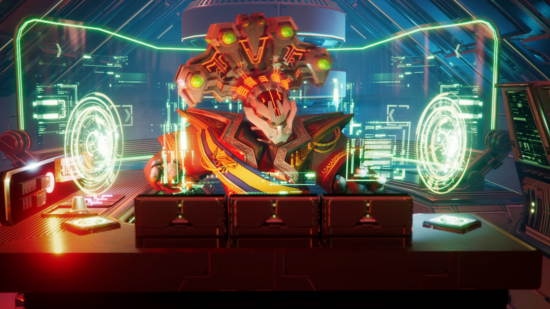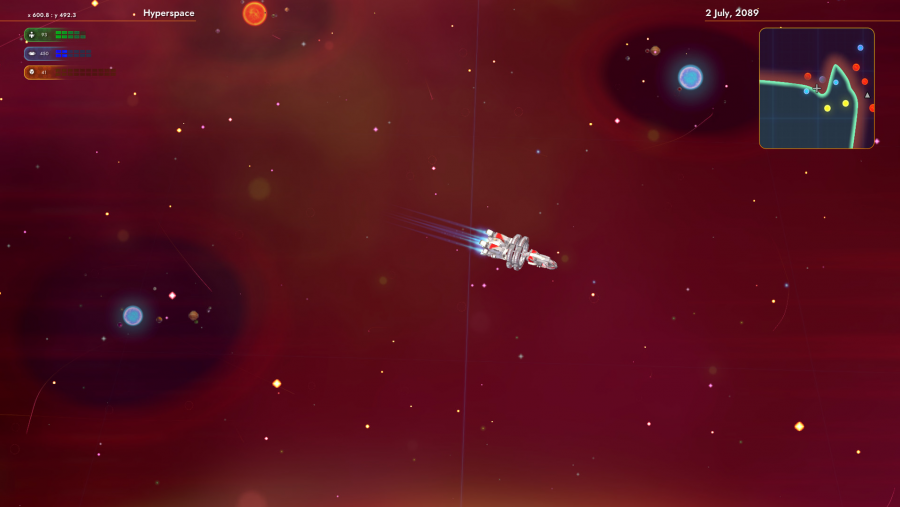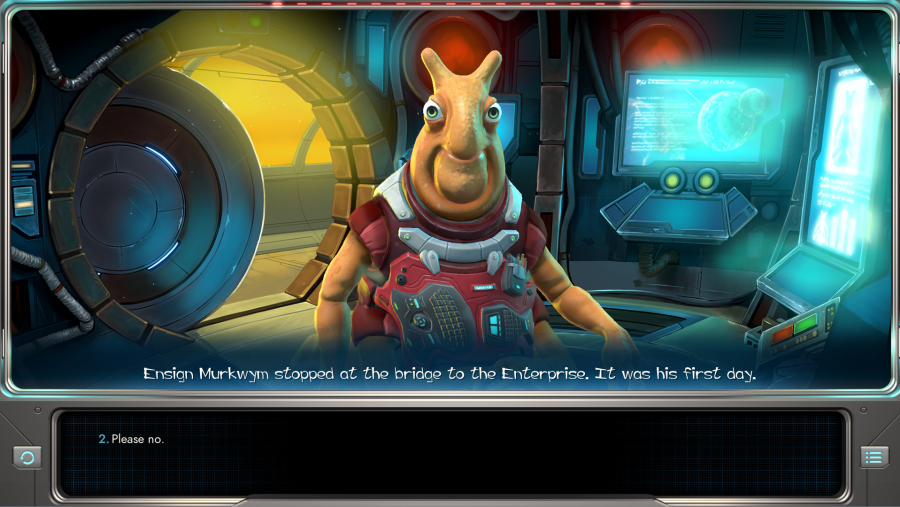“All planets look the same when you’re crying,” Chief Viscosity Officer Wymdoo of the Tywom says. He’s explaining why, after half of his ship fell off, he was unable to identify exactly where the missing part landed. As questgiving goes, it’s an unusual setup. Then again, the Tywom are an unusual bunch of extraterrestrials.
An intelligent sluglike species with an unfortunate propensity for hugs, they’ve been caretaking our galaxy as a favour to the highly advanced murderer empire of the Scryve. It’s the Scryve who shot Wymdoo’s ship down on its way to, uh, warn us about the Scryve.
“If people shoot at you, they’re not really your friends,” I advise Wymdoo.
“That makes so much sense when you say it that way,” he muses.
The Tywom have been watching us ever since they first picked up our radio transmissions 50 years ago. The way us mere mortals swoon at the mention of the Kardashians? That’s how the Tywom feel about the entire human race. They became enamoured, watching all our telly, and have hidden us from their masters ever since – in much the same way Arthur Dent and Ford Prefect once stowed away on a Vogon Constructor vessel by hiding out with the cooks.
That’s the very best bit of Star Control: Origins – the part reminiscent of The Hitchhiker’s Guide to the Galaxy, which recognises the potential of an infinite universe for a monumental clash of cultures, strange asides, and above all comedy. It’s such a shame that the rest conspires to drag it down into the bargain bin – less stowaway than throwaway.
In PC gaming, when I say ‘space’, you say ‘simulation’. And there are good reasons for that: space exploration is intrinsically linked in the public imagination to incredible feats of science and engineering. It’s only right that our games should reflect that, and they do – in Elite Dangerous, Kerbal Space Program, and 100 others besides.
It’s to Stardock’s credit, though, that Star Control: Origins travels in the opposite direction at hyperspace speed. Every aspect of its play is as simple as can be. Galaxy exploration is a matter of pointing your ship towards your destination on the top-down map and holding down ‘W’ until the nose of the U.E.S. Vindicator collides with a planet, moon, or star (this affords you the opportunity to drive into the sun, which everyone feels like doing at some point midway through the week).
Landing is a matter of lining up your rapidly-falling craft with the dropzone to avoid damage, and traversing the surface itself is reminiscent of Mass Effect 1’s Mako sequences, only with collectables. Never before have I collected ammonia by rolling over luminescent blue icons in the environment, but hey, there’s lots I don’t know about science.
Fleet battles, meanwhile, aren’t really fought by fleets at all. In contrast to what you might expect from developer Stardock – who has a long history of 4X and strategy games – battles are instead fought one-on-one with the AI in what can only be described as competitive Asteroids. It’s all part of an admirable effort to make space gaming immediate, but none of it, I’m sorry to say, is pulled off with any panache. Plugging a controller in helps, but steering the lander is the wrong sort of floaty and – despite different planets sporting ice clouds, firestorms, or height-boosting geysers depending on their atmosphere – the surface always feels sparse and underwhelming. Fleet battles are an exercise in circling endlessly until you bounce off a rock.
There’s depth promised by ship customisation, which can influence everything from your weaponry to your landing trajectory, and fleet composition, which grants you extra ships in your roster to pick for a skirmish. But very little of that is currently accessible in the demo build of the game. Frankly, it was a shock to discover that Star Control: Origins has been in development for five years. It simply doesn’t have the hallmarks of a game late in production – not least in its surprising lack of fidelity, which leaves planets bare and key characters looking like refugees from the low-budget Christmas spin-off of a Hollywood animation.
But then, minutes later, I’m in exquisite conversation with a Legate of the Glorious Empire of the Scryve, who finds my dialogue choices disappointing: “We outgrew sarcasm millennia ago.” I want Star Control: Origins to be as good as its writing, but it’s not – and with a release date on September 20th it’s almost run out of time to get there, with or without a hyperspace drive.


